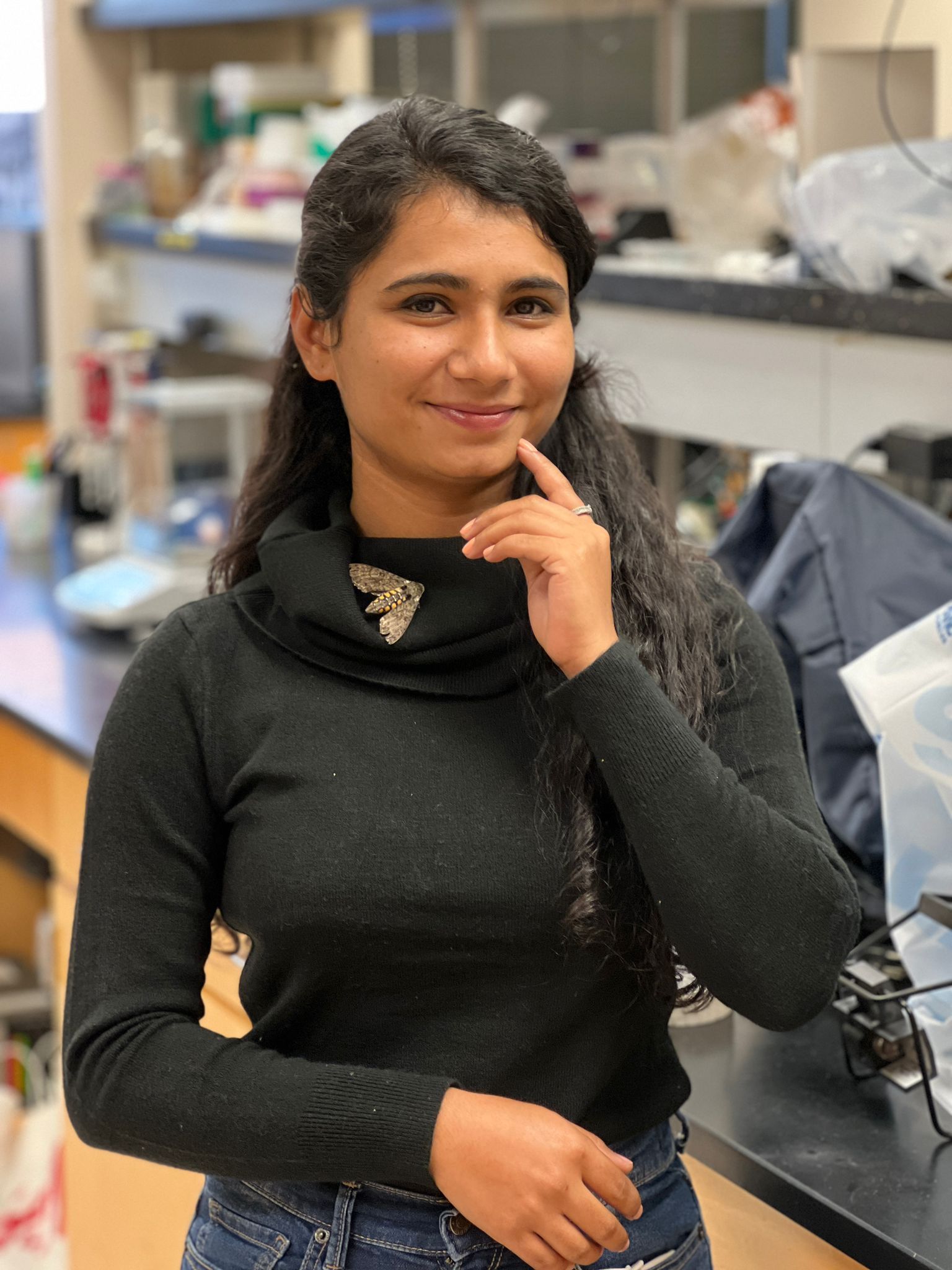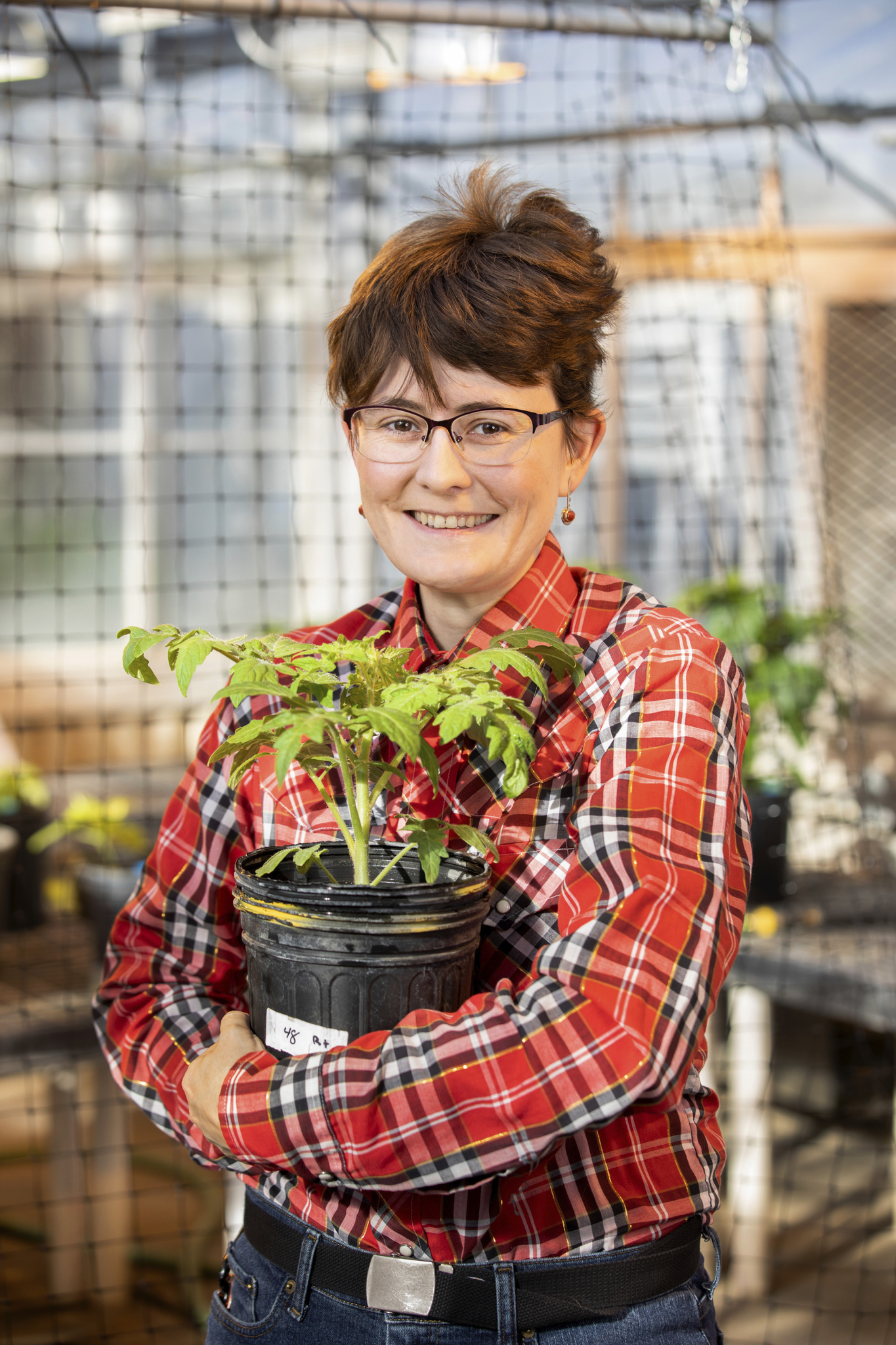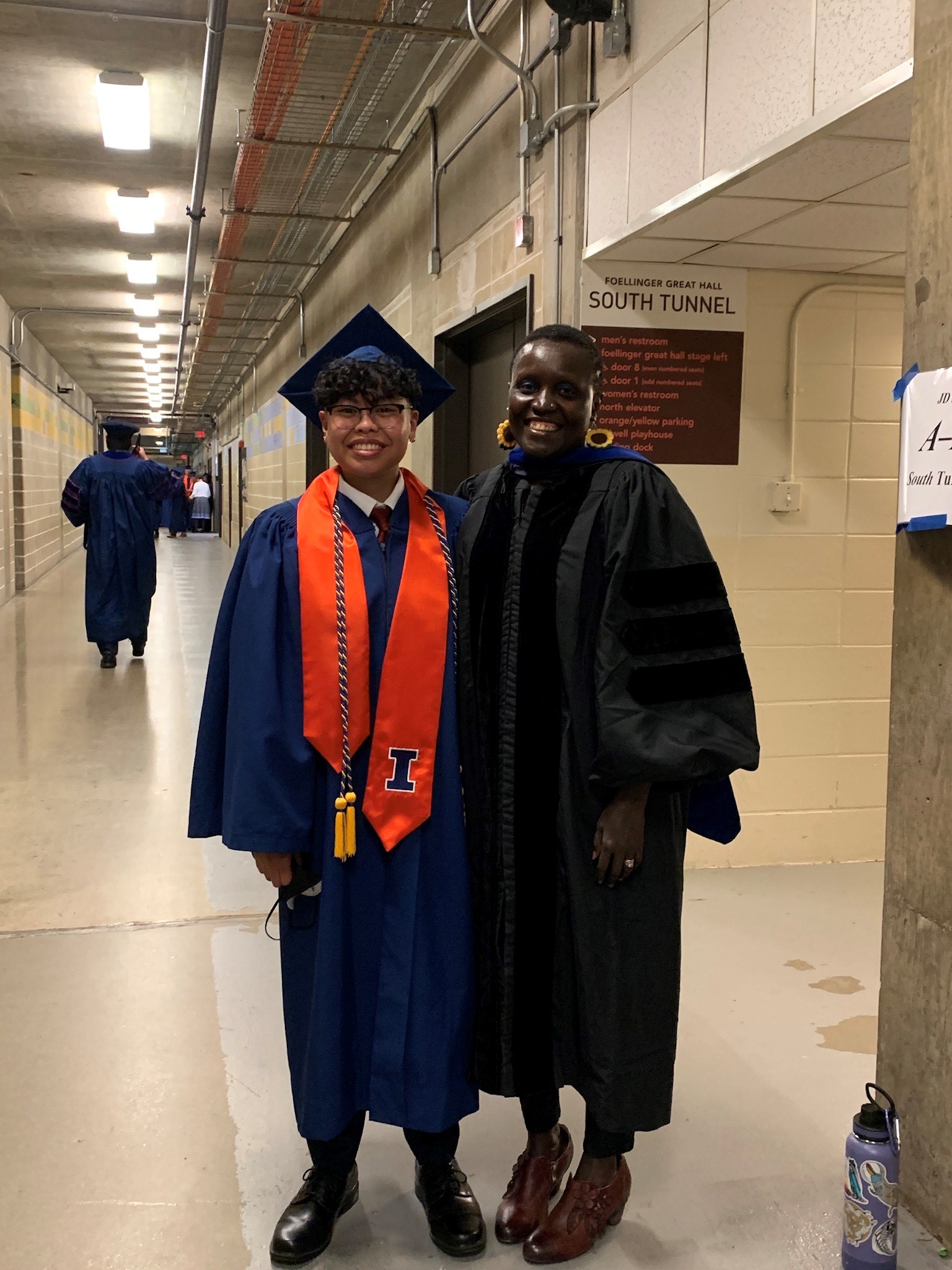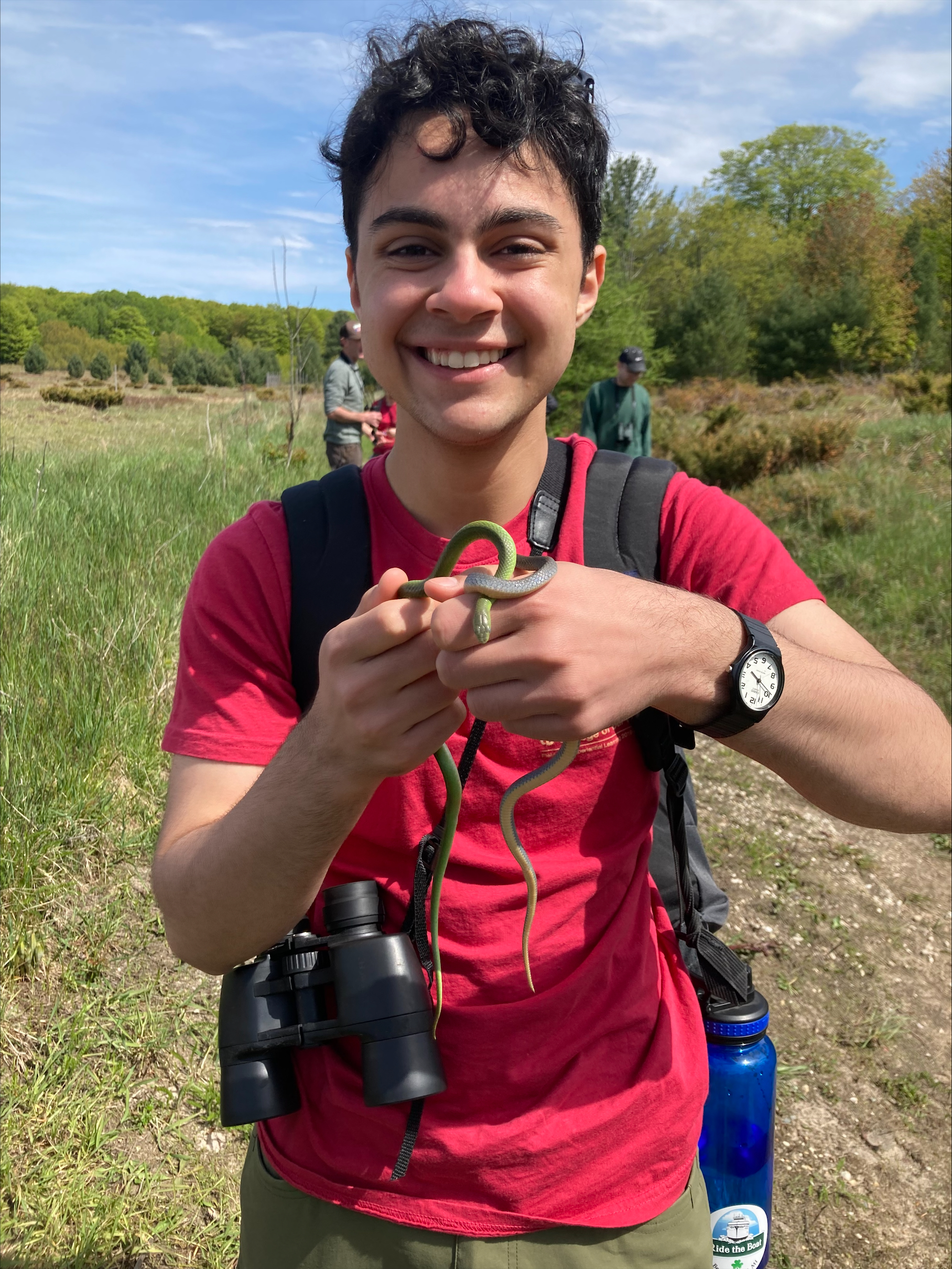Graduate Students
Satinderpal Kaur – PhD Student

Satinder joined The Ngumbi Lab in the summer of 2023. Her research focuses on understanding how flooding stress of maize affects the traits that mediate plant- insect interactions. This is a multi-year field project. We are particularly interested in the effect of flooding stress on plant defensive secondary metabolites and the total phenolic content, along with plant’s nutritional quality. We will also focus on the role of nitrogen management in this plant’s response.
Presentations
Examining the impact of flooding stress on maize plant’s defensive traits against insect herbivores. Poster presented at ESA 2023 (Nov 7, 2023)
Erinn Dady – Masters student

Erinn joined the Ngumbi Lab in the summer of 2019 as a participant in PRECS, a National Science Foundation Research Experience for Undergraduates, and was asked to stay on during my undergraduate career. After many exciting experiments, she knew she had found my place in research. She will begin her masters of Entomology with the Ngumbi Lab in Fall 2022.
Erinn is very passionate about food. Before returning to school, she worked for many years as a chef and a baker at several locally owned Champaign-Urbana restaurants. She is so excited to be approaching food from a new angle, helping farmers to understand the mechanisms of plant defenses against insect herbivory and environmental stressors resulting from climate change. I am excited to help growers of specialty crops like tomatoes face these challenges, and to promote systems inspired by nature that encourage a reduction in the use of pesticides. Erinn is committed to inclusive outreach and motivating others along my journey. When everyone has a seat at the table, the party is much cheerier!
She is excited to address insect-related food insecurity through the lens of chemical ecology, focusing on the effects of combinatorial stress on plant-insect and plant-microbe interactions in crop plants.
Undergraduate Students
Michael Somerville

Emma Cartelli

Presentations
Decreased chemical defenses in stressed heirloom tomatoes – Poster presented at the Undergraduate Research Symposium on campus on April 27th, 2023.
The Impact of Biotic and Abiotic Stress on Tomato Metabolome – Poster presented at The Entomological Society of America Meeting in National Harbor, MD on November 6th, 2023. I won second place!
Lily Coy

Lily is an Integrative Biology major with a minor in Chemistry. She has been in the Ngumbi lab since Spring 2023, where she has been working on research that investigates the impacts of both abiotic and biotic factors on different varieties of tomato plants. She presented in the Undergraduate Research Symposium last spring and earned the top award in the agriculture and food systems department.
NGUMBI LAB STUDENT ALUMNAE
Aaron Mleziva
While at the Ngumbi Lab, Aarons’ goal of his research was to build a critical understanding of the additive, antagonistic, and/or synergistic responses of Maize (corn) experiencing varying environmental stress factors in the presence of climatic changes. He focussed on the combinatorial stress factors of flooding, elevated carbon dioxide, and herbivory by the Fall armyworm–Spodoptera frugiperda (Lepidoptera : Noctuidae), given their growing importance in the context of global climate change.”

Miles Arceneaux
At the Ngumbi Lab, Miles research focussed on the large umbrella topic of climate change and zoomed in to take a closer look at how climate change has increased the frequency of flooding events around the globe, and how this has an effect on crops. Specifically, he investigated how tomato plants physiology were impacted by the combinatorial stressors of flooding and herbivory. He further investigated how flooding induced changes in tomato indirectly affected herbivores growth and performance. Outside of the lab he enjoys fashion, gaming and cooking different types of foods!”

Ndidi Ojiako
“Ndidi worked in the Ngumbi Lab as a part of the iBio Summer Research Scholarship in the Summer of 2021. She worked closely with the S. frugiperda (fall armyworm) pest and explored the link between environmental stress on maize plants and this pest. She graduated from UIUC in 2022 and is currently pursuing her medical degree at the Medical College of Wisconsin. In her free time, she enjoys reading, biking, and knitting.”

Raelin Mamaril
During their time at the Ngumbi lab (from fall 2021 to spring 2022), Raelin studied the effects of flooding maize (Zea mays) on the growth and performance of the fall armyworm (Spodoptera frugiperda). Under Dr. Ngumbi, Raelin has the opportunity to present at the Entomological Society of America’s March 2022 North Central branch meeting, as well as the University of Illinois’ April 2022 Undergraduate Research Symposium.
Currently, Raelin is pursuing a one-year fellowship as a Public Health Entomology for All Fellow through the Entomological Society of America and the Centers for Disease Control and Prevention. Once completed, they will be attending Cornell University in the fall of 2024 to pursue a Master of Science in Entomology, specializing in vector-borne disease biology.”



Anagha Tiwari

Akshata Tiwari

Rami Jameel

Olivia Barett

Olivia’s research was in pursuit of new management techniques for western corn rootworm (WCR) beetles, an economically devastating corn plant pest that has developed resistance to current management practices. In addition to corn plant volatiles, WCR beetles respond strongly to floral volatiles emitted by certain Cucurbita maxima (squash) varieties, though at present it is unclear whether this attraction is due to the quantity or the quality (i.e., specific compounds present in the volatile blend) of the volatiles. Additionally, non-volatile compounds called cucurbitacins, which are the compounds that make bitter gourds/cucumbers/melons “bitter”, are known to stimulate compulsive feeding in WCR and related beetles. While some Cucurbita maxima varieties are known to accumulate cucurbitacins, it is unclear which varieties have these compounds, nor is it known whether the presence of these compounds is acting synergistically with the volatile compounds to influence beetle behavior. To answer these questions, they analyzed floral volatile and cucurbitacin compounds.
Ndidi Ojiako

